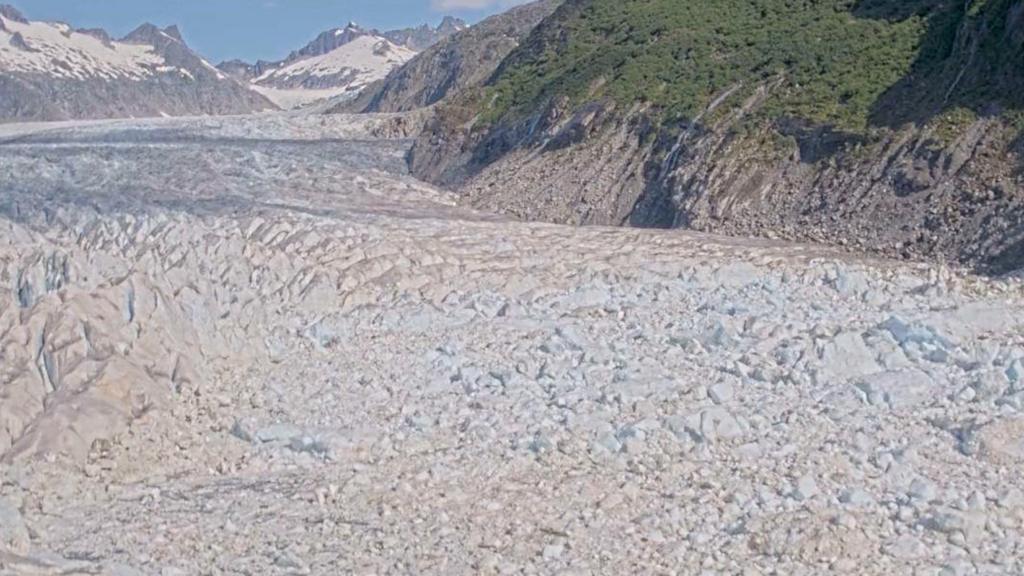Residents in parts of Alaska are evacuating their homes as meltwater breaches a basin dammed by the Mendenhall Glacier, prompting concerns of unprecedented flooding in the state’s capital.
The National Weather Service (NWS) office in Juneau has issued a flood warning, citing glacial outburst water flowing into the Mendenhall River and endangering nearby residences.
Local authorities had been alerting residents to the potential for evacuation for several days. On Tuesday, officials confirmed that water had begun escaping the ice dam, with flooding anticipated in the days ahead.
The Mendenhall Glacier, a popular tourist destination, is located 12 miles (19km) from Juneau.
Water levels reached 9.85ft (3m) on Tuesday, remaining below the major flooding threshold of 14ft, according to the NWS. However, by Wednesday morning, levels had surpassed 16ft, considered a crest.
“Based on all available data, this will be a new record,” stated Nicole Ferrin, a weather service meteorologist, during a press conference on Tuesday.
The City of Juneau website explains that glacial lake outburst floods occur when a lake formed by melting snow, ice, and rain drains rapidly, likening the process to removing a plug from a filled bathtub. When meltwater levels reach a critical point, they can overwhelm a glacier that previously contained them.
Alaska Governor Mike Dunleavy issued a state disaster declaration on Sunday, citing the “imminent threat of catastrophic flooding from a glacier lake outburst flood (GLOF)” in the Juneau area.
Flooding has been a recurring concern in the region since 2011, with homes damaged and swept away by floodwaters. In the previous year, hundreds of homes sustained damage.
Mountain glaciers are shrinking globally due to rising temperatures.
Increased meltwater accumulation can lead to the formation of glacial lakes. Scientists have observed a rise in the number and size of these lakes worldwide since 1990.
The natural ice and rock dams that contain these lakes can fail suddenly and unpredictably, resulting in devastating floods.
Researchers anticipate that climate change will exacerbate the frequency of these outburst floods in the future, although historical trends and the underlying causes of individual floods remain complex.
The fire service says broken glass in sunlight can start fires in hot weather, along with barbecues.
Joint Base Elmendorf-Richardson outside Anchorage has formed a critical part of America’s military readiness, dating back to the Cold War.
Armoured vehicles were spotted at urban centres and tourist sites around the US capital on Tuesday evening.
The rain and high winds experienced during stormy weather can damage homes and cause power outages.
Video shows mangled train cars piled on top of each other on the tracks, as emergency crews attended the scene

